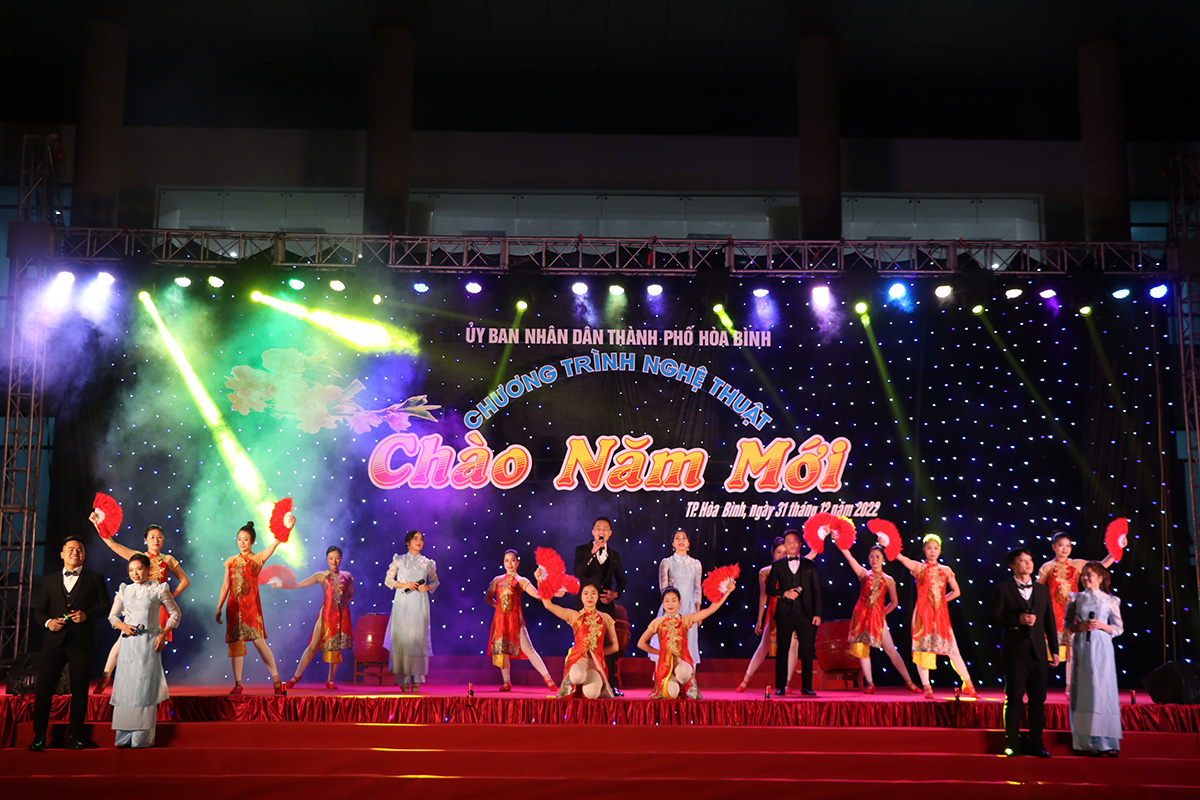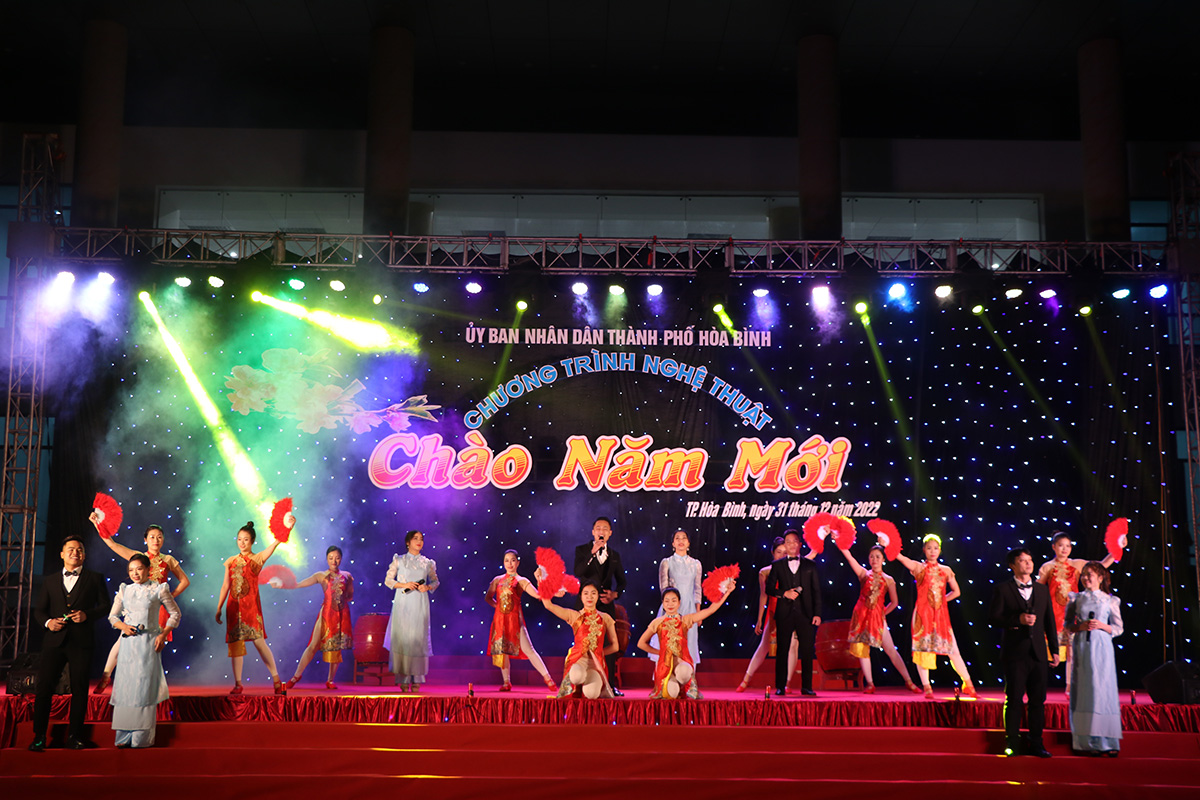
(HBO) - In the evening of December 31, at the outdoor stage of the City’s Cultural Center, the People's Committee of Hoa Binh City organized the art program "Welcoming the New Year, 2023”. There was the attendance of the leaders from the City Party Committee, the People's Committee and other appropriate authorities and departments, unions and a large number of people in Hoa Binh city.

The medley "Festival Drum –
Welcoming the New Spring” performed by the the actors and attresses at the art
program "Welcoming the New Year, 2023”.
The art program "Welcoming the
New Year 2023” with 19 special music and dance performances acted by more than
100 actors and attressses who are the students from high schools and the
professional actors and attresses, the nucleus of the mass art. The
performances have themes praising the Party, Uncle Ho, the homeland, the
country, praising the spring and the national pride. They include the medley "
Festival Drum – Welcoming the New Spring”, the medley " Chuc Xuan (Wishing
Spring) – Mua Xuan Oi (Spring)”, singing and dancing "like spring flowers”,
dancing "My Vietnam”, singing "You are my faith to win”, the modern dance "The
Spring Rhythm”, "Rumba-chacha” dance…, which have been elaborately staged with
a cheerful and bustling melody, bringing emotions and creating an atmosphere of
joy and excitement to welcome the new year.
The art program is series of
events celebrating the Lunar New Year in 2023, and practically celebrating the
93rd anniversary of the founding of the Communist Party of Vietnam (3 February
1930 - 3 February 2023); 73 years of the traditional day of Vietnamese students
(January 9, 1950 - January 9, 2023). Thereby, it helps enrich the spiritual
life of the people in the city, encouraging and motivating the spirit of all
classes of people to actively emulate in production, contributing to building a
rich and beautiful homeland.
With an increasingly vibrant and widespread emulation movement aimed at building cultured residential areas and cultured families, Yen Thuy District has been making steady progress toward improving both the material and spiritual well-being of its people, while fostering a civilized, prosperous, beautiful, and progressive community.
Once lacking recreational spaces and community facilities, Residential Group 2 in Quynh Lam Ward (Hoa Binh City) has recently received attention for the construction of a new, spacious, and fully equipped cultural house. The project followed the model of state support combined with public contributions in both labor and funding.
The "All people unite to build cultural life" movement, which has been effectively integrated with Kim Boi district’s socio-economic development goals, is fostering a lively spirit of emulation across local residential areas, hamlets, villages, public agencies, and enterprises. In addition, through the initiative, traditional cultural values are being preserved and promoted, while community solidarity and mutual support in poverty reduction and economic development are being strengthened.
A working delegation of the Hoa Binh provincial People’s Committee led by its Permanent Vice Chairman Nguyen Van Toan on June 11 inspected the progress of a project to build the Mo Muong Cultural Heritage Conservation Space linked to tourism services in Hop Phong commune, Cao Phong district.
Born and growing in the heroic land of Muong Dong, Dinh Thi Kieu Dung, a resident in Bo town of Kim Boi district, in her childhood was nurtured by the sweet lullabies of her grandmother and mother. These melodies deeply imprinted on her soul, becoming an inseparable part of her love for her ethnic group's culture. For over 20 years, this love for her hometown has driven Dung to research, collect, and pass down the cultural values of the Muong people to future generations.
In the final days of May, the Ethnic Art Troupe of Hoa Binh Province organized performances to serve the people in remote, mountainous, and particularly disadvantaged areas within the province. These were not just ordinary artistic shows, but they were the meaningful journeys aimed at spreading cultural values, enhancing the spiritual life of the people and contributing to the preservation of ethnic minority cultural identities.



